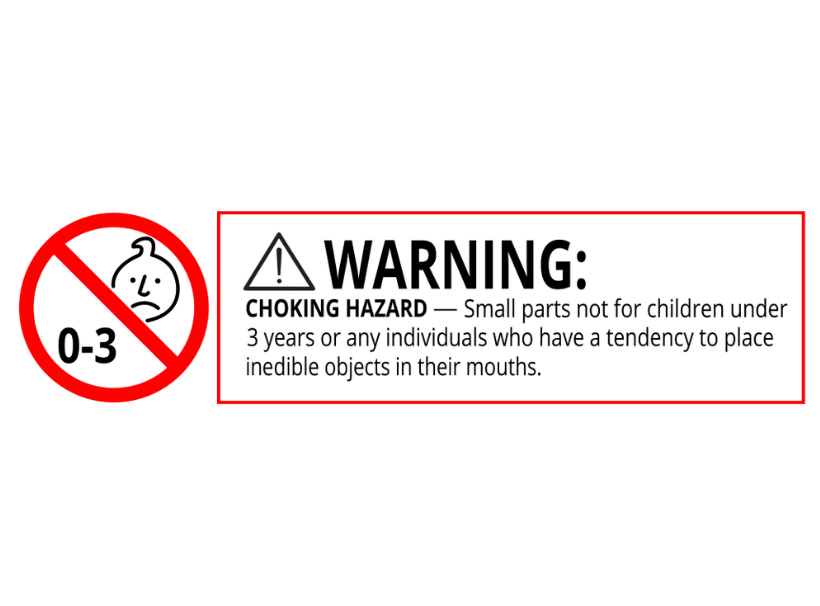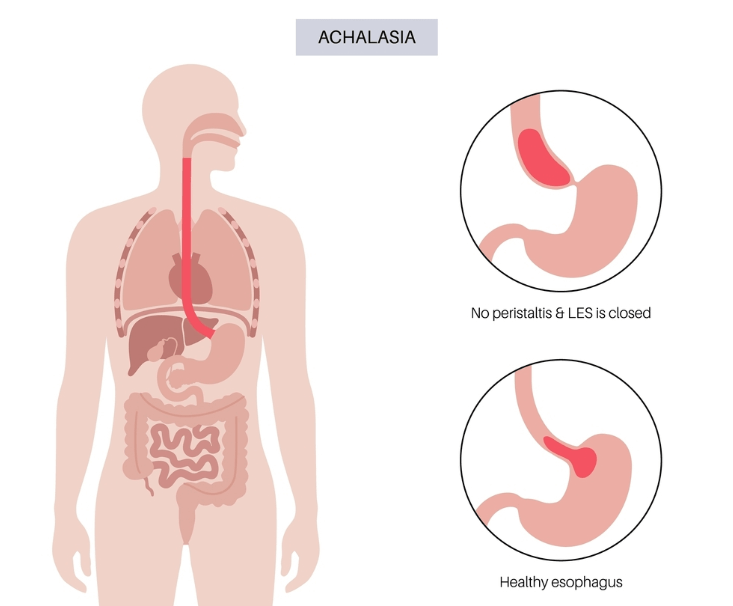Table of Contents
Swallowing a bottle cap can be a potentially dangerous situation that requires immediate attention. While it may not always lead to serious complications, there are several risks and considerations associated with this action. Here’s what you need to know:
Choking Hazard
Choking is a life-threatening emergency, and knowing how to respond promptly can save a person’s life. Here are the steps to take if you or someone else is choking:

Stay Calm
It’s essential to remain as calm as possible to think and act clearly.
Assess the Situation
Determine if the person is indeed choking. Look for the universal signs of choking, which may include:
Clutching the throat
Inability to speak or difficulty breathing
Wheezing or high-pitched noises when trying to breathe
Bluish lips or skin (in severe cases)
Ask for Help
If you’re with other people, call for assistance immediately. In a public place, alert someone nearby to call 911 or the local emergency number.
Perform the Heimlich Maneuver (Abdominal Thrusts)
If the person is conscious and choking, you can perform the Heimlich maneuver to attempt to dislodge the obstructing object. Here’s how:
Stand behind the choking person and place your arms around their waist.
Make a fist with one hand and place the thumb side against the middle of the person’s abdomen, slightly above the navel.
Grab your fist with your other hand and give quick, upward thrusts into the abdomen, as if you are trying to lift the person off the ground. Use forceful, sudden jerks.
Continue the thrusts until the object is expelled or the person can breathe, or until they become unconscious.
Chest Thrusts for Pregnant or Obese Individuals
If the person is pregnant, obese, or too large for you to perform the Heimlich maneuver, chest thrusts can be an alternative. Place your hands on the chest, just above the breastbone, and perform quick thrusts inwards and upwards.
Back Blows (For Infants)
If an infant is choking, place them face-down on your forearm, supporting their head and neck. Deliver firm but gentle back blows with the heel of your hand between the shoulder blades. Check their mouth for the obstructing object between each set of blows.
Check the Mouth
After successful removal of the obstruction or if the person loses consciousness, check the mouth for any remaining objects and remove them if visible.
Perform CPR (if needed)
If the person becomes unconscious and doesn’t have a pulse, start CPR following the guidelines for adult or child CPR, depending on the age. Continue until professional help arrives.
Seek Medical Attention
Even if the choking episode appears to be resolved, it’s crucial to seek medical attention for an evaluation, as there may be underlying injuries or complications.
Risk of Aspiration
The risk of aspiration occurs when foreign objects, such as food, liquids, or other materials, enter the airway and are inhaled into the lungs instead of going down the esophagus and into the stomach. Aspiration can lead to serious health issues, including aspiration pneumonia, lung infections, and other respiratory problems. Here are some steps to reduce the risk of aspiration:

Maintain Proper Posture
Sit or stand upright while eating or drinking. Avoid lying down flat or reclining too far back when consuming food or liquids. Good posture helps gravity guide food and fluids down the esophagus and into the stomach.
Take Small Bites and Sips
Eat and drink slowly, taking small bites and sips to prevent overwhelming the ability to swallow. Chewing food thoroughly and sipping liquids slowly can reduce the risk of choking and aspiration.
Be Mindful While Eating
Pay attention to your meal. Avoid distractions like watching TV, talking excessively, or laughing while eating, as these activities can increase the risk of inhaling food or liquids.
Modify Diet as Needed
If you or someone you know has difficulty swallowing or is at risk of aspiration due to a medical condition (such as stroke, Parkinson’s disease, or neurological disorders), consult a healthcare professional or speech therapist. They can recommend modifications to the diet, such as thickened liquids or pureed foods, to reduce the risk of aspiration.
Avoid Alcohol and Sedatives
These substances can impair your ability to swallow and protect your airway, increasing the risk of aspiration. If you’ve consumed alcohol or sedatives, be cautious when eating or drinking.
Sit Up After Eating
Remain in an upright position for at least 30 minutes after eating to allow gravity to assist in the movement of food and liquids from the esophagus into the stomach.
Use Assistive Devices
In some cases, individuals with swallowing difficulties may benefit from using assistive devices such as special utensils, straws, or feeding tubes. Consult with a healthcare professional for guidance on using these devices safely.
Regular Dental Care
Good oral hygiene and regular dental check-ups can help prevent dental problems that may contribute to difficulty swallowing or choking.
Stay Hydrated
Proper hydration can help maintain healthy throat tissues and make swallowing easier. Be sure to drink enough fluids throughout the day, but do so cautiously if you have swallowing difficulties.
Seek Medical Advice
If you or someone you know consistently experiences difficulty swallowing, coughing or choking during meals, or signs of aspiration, consult a healthcare professional. They can perform diagnostic tests and recommend appropriate treatment or interventions.
Gastrointestinal Issues
Gastrointestinal issues can encompass a wide range of digestive problems, from mild discomfort to severe conditions. Here are some general guidelines to help manage and potentially prevent gastrointestinal issues:

Healthy Diet
Eat a balanced diet with plenty of fruits, vegetables, whole grains, and lean proteins.
Limit high-fat, spicy, or greasy foods that can trigger digestive problems.
Avoid excessive caffeine and alcohol, as they can irritate the gastrointestinal tract.
Stay Hydrated
Drink enough water throughout the day to prevent dehydration, which can lead to constipation and other digestive issues.
Fiber Intake
Include fiber-rich foods in your diet, such as whole grains, beans, and vegetables, to promote regular bowel movements and prevent constipation.
Portion Control
Practice portion control to avoid overeating, which can lead to bloating, indigestion, and discomfort.
Chew Food Thoroughly
Chew your food slowly and thoroughly to aid in digestion and reduce the risk of swallowing air, which can lead to bloating and gas.
Regular Meals
Try to eat regular meals at consistent times each day to help regulate your digestive system.
Probiotics
Consider incorporating probiotic-rich foods like yogurt or taking probiotic supplements to support a healthy gut microbiome.
Limit Trigger Foods
Identify foods that trigger gastrointestinal symptoms for you, such as dairy products if you’re lactose intolerant, and reduce or eliminate them from your diet.
Manage Stress
High levels of stress can exacerbate gastrointestinal issues. Practice stress-reduction techniques like yoga, meditation, or deep breathing exercises.
Regular Exercise
Physical activity can promote regular bowel movements and help maintain a healthy digestive system.
Avoid Smoking
Smoking can contribute to various gastrointestinal problems, including acid reflux and peptic ulcers. Quitting smoking can improve your digestive health.
Medication Management
If you take medications, follow your doctor’s instructions carefully. Some medications can irritate the stomach lining or lead to constipation.
Stay Informed
Educate yourself about common gastrointestinal conditions, such as irritable bowel syndrome (IBS), acid reflux, or inflammatory bowel disease (IBD). Understanding your condition can help you manage it effectively.
Stay Hygienic
Practice good hygiene, such as washing your hands before meals, to reduce the risk of foodborne illnesses and infections that can lead to gastrointestinal problems.
Seek Medical Advice
If you experience persistent or severe gastrointestinal symptoms such as abdominal pain, diarrhea, constipation, bleeding, or unexplained weight loss, consult a healthcare professional for a proper diagnosis and treatment plan.
Potential for Damage
The potential for damage to the gastrointestinal tract can occur due to various factors, including swallowing foreign objects, consuming irritants, or experiencing trauma. Preventing such damage is crucial for maintaining gastrointestinal health. Here are some tips on how to minimize the potential for damage:

Practice Safe Eating Habits
Eat slowly and mindfully to avoid accidentally biting the inside of your cheeks or tongue.
Be cautious when eating hard or sharp foods that can potentially cause cuts or abrasions in your mouth and throat.
Avoid Swallowing Harmful Objects
Be vigilant, especially with small children, to prevent them from swallowing small objects that could cause damage if ingested, such as coins, magnets, or small toys.
Use Caution with Medications
Follow your healthcare provider’s instructions when taking medications. Some medications can irritate the gastrointestinal tract, so it’s essential to take them as directed and with food or water if recommended.
Minimize Alcohol and Smoking
Excessive alcohol consumption can lead to alcohol-induced gastritis or ulcers. Smoking can also increase the risk of gastrointestinal problems. Reducing or quitting these habits can reduce the potential for damage.
Manage Stress
High levels of stress can affect the gastrointestinal tract. Practice stress-reduction techniques, such as deep breathing, meditation, or yoga, to help minimize the impact of stress on your digestive system.
Stay Hydrated
Proper hydration helps maintain the health of the digestive tract lining. Drink enough water daily to prevent dryness and irritation.
Follow a Balanced Diet
Eat a diet rich in fiber, fruits, vegetables, and whole grains to support overall digestive health and prevent issues like constipation or diverticulitis.
Limit Spicy and Acidic Foods
Spicy foods and highly acidic foods and beverages can irritate the esophagus and stomach lining. Moderation can help prevent damage from these foods.
Manage Gastroesophageal Reflux Disease (GERD)
If you have GERD, follow your doctor’s recommendations for managing the condition, which may include dietary changes, lifestyle modifications, and medication.
Practice Safe Sex
Sexually transmitted infections (STIs) can affect the gastrointestinal tract. Use protection and seek medical attention if you suspect you have an STI.
Seek Immediate Medical Attention
If you experience severe abdominal pain, bleeding, vomiting blood, or any other severe gastrointestinal symptoms, seek medical attention promptly.
Avoid Excessive Use of Over-the-Counter Pain Relievers
Nonsteroidal anti-inflammatory drugs (NSAIDs), such as ibuprofen, can irritate the stomach lining. Use them sparingly and follow recommended dosages.
13.Stay Informed
Educate yourself about common gastrointestinal conditions and symptoms, so you can seek medical attention when necessary and make informed decisions about your health.
Medical Intervention
Medical intervention refers to the actions taken by healthcare professionals to diagnose, treat, and manage medical conditions or emergencies. Here are some general steps to understand how medical intervention works:

Assessment and Diagnosis
When you have a medical issue or emergency, the first step is often an assessment by a healthcare provider. This may involve a physical examination, taking a medical history, and discussing your symptoms and concerns.
To determine a diagnosis, healthcare professionals may order various tests, such as blood tests, imaging (like X-rays or MRIs), or biopsies, depending on the nature of the condition.
Treatment Planning
Once a diagnosis is made, healthcare providers will develop a treatment plan tailored to your specific condition. This may involve medication, surgery, physical therapy, lifestyle modifications, or a combination of these approaches.
Medications
Medications are prescribed to manage various medical conditions. They may come in the form of pills, injections, creams, or intravenous (IV) fluids.
It’s essential to follow your healthcare provider’s instructions for medication dosage and timing precisely.
Surgery
Surgical intervention may be necessary for conditions that cannot be managed through medication or other non-invasive methods. Surgery can involve minor procedures or complex operations, depending on the condition.
Therapies and Rehabilitation
Some conditions require therapies such as physical therapy, occupational therapy, or speech therapy to regain or improve function.
Rehabilitation programs may be necessary after surgery or to manage chronic conditions.
Emergency Care
In emergency situations, medical intervention can be life-saving. Call 911 or seek immediate medical attention if someone is experiencing a medical emergency like a heart attack, stroke, severe injury, or choking.
Chronic Condition Management
For chronic conditions like diabetes, hypertension, or asthma, medical intervention involves ongoing monitoring, medication management, lifestyle changes, and regular follow-up with healthcare providers.
Pain Management
Pain management is an essential aspect of medical intervention, especially for conditions causing chronic or severe pain. This may include the use of pain medications, physical therapy, or alternative therapies.
Monitoring and Follow-Up
Regular follow-up appointments and monitoring are essential to assess the progress of treatment and make necessary adjustments.
Follow your healthcare provider’s recommendations for ongoing care and preventive measures.
Preventive Care
Medical intervention also includes preventive measures such as vaccinations, screenings (e.g., mammograms, colonoscopies), and lifestyle changes to reduce the risk of developing certain medical conditions.
Patient Education
Healthcare providers often educate patients about their conditions, treatment options, and self-care strategies to empower them to manage their health effectively.
Collaboration and Referrals
Healthcare providers may collaborate with specialists, therapists, or other experts to provide comprehensive care. Referrals to specialists may be necessary for specific conditions.
Informed Consent
In most cases, patients have the right to be informed about their treatment options, potential risks, and benefits. You may need to provide informed consent before certain medical interventions.
Prevention
Prevention is a proactive approach to avoiding health problems and promoting overall well-being. Here are some general principles and steps for practicing prevention:

Healthy Lifestyle Choices
Diet: Consume a balanced diet rich in fruits, vegetables, whole grains, lean proteins, and healthy fats. Limit processed foods, sugar, and excessive salt intake.
Physical Activity: Aim for regular exercise. Incorporate both aerobic and strength-training activities into your routine.
Tobacco and Alcohol: Avoid smoking and limit alcohol consumption. Both habits can have detrimental effects on health.
Sleep: Get adequate sleep each night. Aim for 7-9 hours of quality sleep to support overall health.
Preventive Screenings and Check-Ups
Visit your healthcare provider regularly for check-ups and preventive screenings. These may include blood pressure checks, cholesterol tests, mammograms, Pap smears, colonoscopies, and vaccinations.
Follow your healthcare provider’s recommendations for screenings based on your age, gender, and medical history.
Immunizations
Stay up-to-date on vaccinations. Vaccines help prevent various infectious diseases and protect both you and your community.
Hand Hygiene
Wash your hands thoroughly and regularly with soap and water to prevent the spread of infections.
Stress Management
Practice stress-reduction techniques, such as mindfulness, meditation, yoga, or deep breathing exercises.
Find healthy ways to cope with stress, as chronic stress can have adverse effects on your health.
Safe Sex Practices
Use protection and practice safe sex to reduce the risk of sexually transmitted infections (STIs).
Get regular STI screenings if you are sexually active and at risk.
Injury Prevention
Take precautions to prevent accidents and injuries. Use seatbelts, helmets, and other safety gear when appropriate.
Ensure a safe environment, especially for children, by childproofing your home and keeping hazardous materials out of reach.
Healthy Relationships
Maintain healthy relationships with family, friends, and partners. Social support can positively impact mental and emotional well-being.
Sun Safety
Protect your skin from the sun’s harmful UV rays by using sunscreen, wearing protective clothing, and avoiding excessive sun exposure.
Regularly check your skin for signs of skin cancer, such as moles or changes in existing spots.
Weight Management
Maintain a healthy weight through a combination of a balanced diet and regular exercise. Obesity is a risk factor for many chronic health conditions.
Substance Abuse Prevention
Avoid recreational drug use and misuse of prescription medications. Seek help if you have substance abuse issues.
Mental Health Awareness
Be mindful of your mental health. Seek help if you experience symptoms of depression, anxiety, or other mental health conditions.
Reduce stigma around mental health issues to encourage open conversations and support.
Environmental Awareness
Be conscious of environmental factors that can affect health, such as pollution, toxins, and allergens. Take steps to reduce exposure when possible.
Regular Dental and Eye Care
Schedule regular dental check-ups and eye exams to maintain oral and visual health.
Health Education
Stay informed about health-related topics through reliable sources, books, courses, or discussions with healthcare professionals.
Conclusion
In conclusion, it is imperative to recognize and understand the significant dangers associated with swallowing a bottle cap. While it may seem like a minor accident, the consequences can be severe and life-threatening. From the risk of choking and airway blockage to potential injuries to the digestive tract, the repercussions of ingesting a bottle cap are not to be underestimated.
Prevention remains the most effective strategy in addressing this issue. Vigilance and responsible handling of bottle caps, especially around young children, can go a long way in averting these accidents. Educating ourselves and others about the potential hazards, as well as the immediate actions to take in case of ingestion, is crucial.
In cases where an accident has occurred, seeking immediate medical attention is paramount. Timely intervention can make all the difference in ensuring the safety and well-being of the affected individual. Overall, awareness, prevention, and quick response are our best defenses against the dangers of swallowing a bottle cap.
